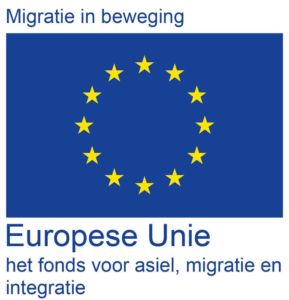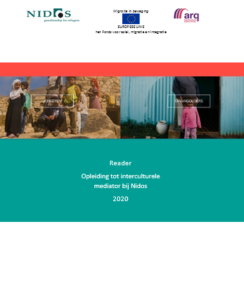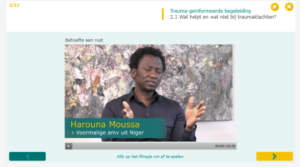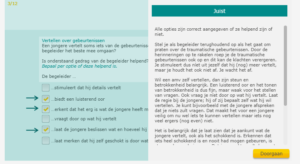Project-partner: ARQ National Psychotrauma Centre/ Centrum’45
October 2017 – November 2020
Objectives: to professionalise intercultural mediation within guardianship and to strengthen a culture sensitive and stress & trauma informed approach within guardianship.
Project outputs
1) Training and professionalisation of intercultural mediators
Inspired by the experience of other European countries, Nidos piloted an intercultural mediation programme under the first phase of the Resilience project in 2016. An intercultural mediator (ICM) is someone who not only translates language, but is also someone who can explain cultural differences. In essence, and ICM is someone who can bridge the gap between two worlds. In the context of guardianship in the Netherlands, the main goal of the intercultural mediator is to increase the understanding for the needs of unaccompanied children amongst professional guardians and other care takers. To date, Nidos guardians have consulted with intercultural mediators in over 150 individual cases and the experience has been positive. Beyond increasing mutual understanding, intercultural mediators also support the research and development of culturally sensitive (trauma informed) interventions. Following the lessons learnt from the pilot, and in-line with the WHO recommendations regarding intercultural mediation, Nidos and ARQ National Psychotrauma Centre/ Centrum’45 have taken several steps to professionalise and integrate intercultural mediation within guardianship and trauma informed interventions. These include:
 1. A training programme which has been offered to 15 intercultural mediators. An accreditation process has been initiated.
1. A training programme which has been offered to 15 intercultural mediators. An accreditation process has been initiated.
2. A standardised intake system for intercultural mediation with monitoring and evaluation has been put in place.
3. Clear and coherent definitions for ICMS of their roles and responsibilities have been developed. Guidelines, standards and quality assurance processes to support the recognition and professionalization of intercultural mediation have been developed and will continue to be improved.
4. Professional guidance, supervision and psychological support systems developed for ICMS to build capacity and enhance the quality and consistency of their service have been put in place.
“The use of the expertise of the cultural mediators has enabled us to give more attention to talking about health, safe relationships and sexuality, which are very difficult subjects to talk about with children. We also provide more education on these topics nowadays”.
“During conflicts, when children are not able to understand each other and feel separated from the community, the coaches involve cultural mediators to help the children to recognise their differences. By doing so, we can teach them how to cope with the new issues in life”.
Would you like to learn more about the intercultural mediation programme? We recommend you watch the short film below:
Intercultural Mediation Nidos from Nidos on Vimeo.
2) To strengthen a culture sensitive and stress & trauma informed approach within guardianship
The testing of the short-term culture sensitive and trauma informed intervention, based on EMDR (Eye Movement Desensitization and Reprocessing) and NET (Narrative Exposure Therapy), developed in the first phase of the project has been continued and broadened. In this phase the intervention has been provided to unaccompanied refugee children from Eritrea, Syria, Afghanistan and North Africa. The intervention has been given by EMDR trained therapists from ARQ National Psychotrauma Centre/ Centrum’45, Nidos and partner organisations in close collaboration with trained intercultural mediators to 60 individuals. A research report outlining the effectiveness and the key elements of the approach, will be available soon. This article (only in Dutch-language) describes the approach taken with intercultural mediators in the intervention.
3) E-Learning ‘culture sensitive and stress & trauma informed guardianship’

A new e-learning for guardians and coaches has been developed. The e-learning is designed to practically guide professionals in their day to day work, increase their knowledge and understanding, and improve their awareness and attitude towards stress and trauma among refugee children. The e-learning consists of two parts:
I Cultural Connection
1) Make contact
2) Respectful treatment and
3) How to build trust.
II Trauma-sensitive Guidance
4) What helps and what does not help with trauma complaints?
5) What helps and what does not help with recovery from traumatic stress?
6) What helps and what does not help with chronic stress?
7) Growing up unsafe
8) Resilience.
The e-learning provides best practices, interactive cases, questions and expert videos. Various experts provide theirs insight and, uniquely, the modules also include excerpts from former unaccompanied refugee children who share their experiences.
It takes 3-4 hours to complete. Participants can view the chapters at their own pace from home or office. The training is accredited and has been launched widely within Nidos and its partners. The e-learning is currently only available in Dutch-language.
The following flyer describes the project results (only in Dutch-language).
Contact details
Winta Ghebreab
Manager Resilience Project
Phone: +31 (0) 6 2300 9239
Email: w.ghebreab@nidos.nl
